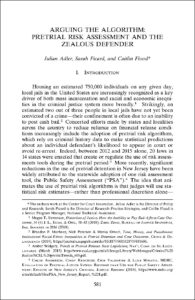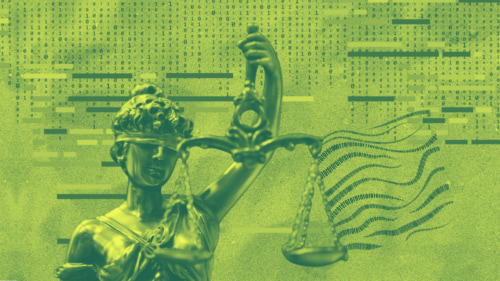-
Caitlin Flood

Caitlin Flood
-
Julian Adler

Julian Adler
-
Sarah Picard

Sarah Picard
The use of pretrial risk assessment tools is the subject of fierce debate. Meanwhile, there is exponential growth in the number of jurisdictions adopting (or considering) risk algorithms to address over-incarceration, the criminalization of poverty, and other injustices at the pretrial stage. This article, which appeared in the Cardozo Journal of Conflict Resolution, seeks to address a gap in the debate over pretrial risk assessment: the role of the defender.
The authors contend that defense attorneys are in a position to challenge the data science undergirding risk assessments and use their implementation as a lever for renegotiating the “going rates”—the default rules that expedite the disposition of cases and drive the plea-bargaining process in a given jurisdiction. Additionally, focusing on recent pretrial reform efforts in New York and New Jersey, the article underscores the potential of defenders to influence broader policy debates that ultimately affect practice on the ground.



